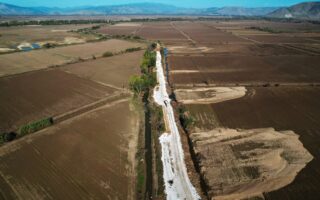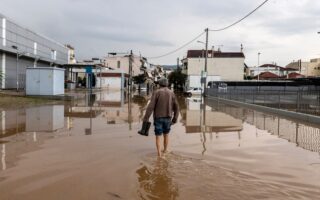Summer memories burn

Despite the incredible political developments in the United States and the start of the Paris Olympic Games, the most important news this week was that the two hottest days in history were recorded. In fact, the previous Sunday and Monday may not even be the hottest days in history, but the hottest since the start of the last ice age some 120,000 years ago. To understand the scale of this, humans began farming just 12,000 years ago. In the last couple of centuries, since the start of the Industrial Age in 1760, human activity has caused a build-up of pollutants which led to the overheating of the planet, or at least contributed towards this.
Till recently, the issue was chiefly the concern of scientists, politicians and activists, who were aware of the dangers and sought ways to contain the damage. These efforts culminated in the Paris Agreement of 2015, in which 196 countries committed themselves to trying to limit the rise in temperature by the end of this century to a global average of 1.5 degrees Celsius above that of the pre-industrial period. However, in the last 12 months, the global average has exceeded a rise of 1.5 degrees, with the last 13 months breaking consecutive records. And so, on Monday, July 22, the average temperature rose to 17.16 degrees, from the previous record of 17.09 degrees on Sunday, according to the Copernicus Climate Change Service.
In Greece, the last monthly bulletin of the National Meteorological Service (EMY) noted that June “was recorded as the hottest ever, in Greece, too,” with average temperatures exceeding the norm by 3 or 4 degrees Celsius, and 5 degrees in places (in Serres). “Precipitation was much lower than normal levels, and in most regions zero precipitation was recorded,” it added. EMY’s forecast for the three months of June, July and August were for average temperatures that “might reach up to 2 degrees Celsius above the seasonal norm.” We don’t know what the final figures will be, but clearly we ought to be alarmed by what is going on in the world, and especially in Greece.
Dealing with the climate crisis demands a revolution in agriculture, in industry, in transportation, in tourism, in civil defense, in the way we build our homes and cities, in every sphere of human activity
Humanity changed the climate and now the climate is forcing humanity to change its ways. To avoid making the problem worse, to alleviate the consequences of rapid climate change, for humanity to hew a more sustainable course, everything must change. Already, sources of energy are being diversified, so that we can free ourselves of fossil fuels, despite the challenges caused by war and by political backtracking, such as when Donald Trump pulled the United States out of the Paris Agreement (fortunately, Joe Biden corrected this on his first day in office in 2020). Dealing with the climate crisis demands a revolution in agriculture, in industry, in transportation, in tourism, in civil defense, in the way we build our homes and cities, in every sphere of human activity.
Scientists note that it may be too soon to conclude that the rise of temperature is accelerating as much as it appears to be doing (and is not just a temporary situation). Also, it may not be too late for humanity to turn things around. But already every one of us feels how difficult things are. From our need to be indoors, in air-conditioned areas, to drought and ever worse fires and floods. The sweet nights of summer, our fruitful, temporal climate, are under threat. Like lovely memories in harsh and urgent reality.





